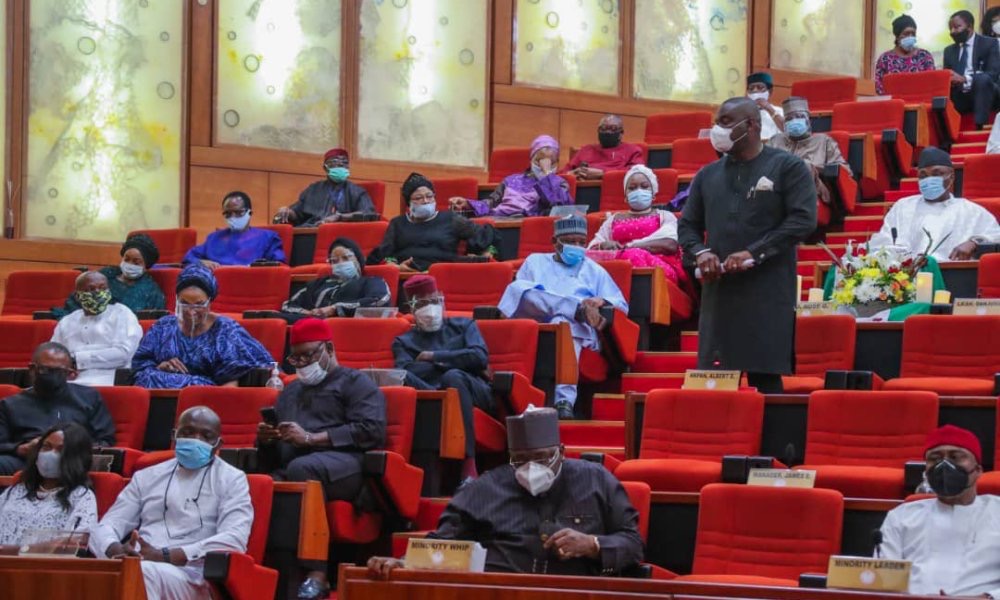 Senate has summoned the Governor of the Central Bank of Nigeria, Godwin Emefiele and Director-General of Security and Exchange Commission, Lamido Yuguda over the CBN’s order restraining banks and financial institutions in the country from transacting in cryptocurrencies.
Senate has summoned the Governor of the Central Bank of Nigeria, Godwin Emefiele and Director-General of Security and Exchange Commission, Lamido Yuguda over the CBN’s order restraining banks and financial institutions in the country from transacting in cryptocurrencies.
It would be recalled CBN on February 5, 2021, ordered all banks to close accounts of anyone who transacts in cryptocurrency.
The order was contained in a circular to banks and other financial institutions, signed on Friday by Director of Banking Supervision, Bello Hassan, and it is expected to take effect immediately.
According to CBN, dealing in cryptocurrency or facilitating payments for cryptocurrency exchanges is prohibited.
The order however sparked angry reactions from many Nigerians especially youths, who called for a reversal of the decision.
Read Also: Outcry Greets CBN’s Order Directing Banks To Close Accounts Related To Cryptocurrencies
The Senate’s committees on Banking, Insurance, and other financial institutions, Capital Market, and that of ICT and cybercrime will have discussions with the heads of the country’s financial institution regulators to brief the panels on the opportunities and threats of the cryptocurrency on the nation’s economy.
The decision by the senators followed a motion by Senators Istifanus Gyang and Tokunbo Abiru, titled, “CBN decision to stop financial institutions from transacting in cryptocurrencies and matters arising therefrom.”
The joint committees will submit their report for the Senate’s consideration in plenary within two weeks.
Gyang said;
Cryptocurrency is both an opportunity and a threat, hence the Senate has a responsibility to ensure that the nation and citizens do not miss out on the opportunities that Cryptocurrency offers.
In the same vein, the Senate intervention could mitigate and prevent likely consequential effects on the nation’s economy and security.
The Federal lawmakers however called for caution pointing out that while cryptocurrency has its negative sides and it has become the fastest-growing form of transaction all over the world.
They argued that technology has changed the way business is conducted in Nigeria and the country cannot run away from cryptocurrency. What has required some of them to say, is regulation.
